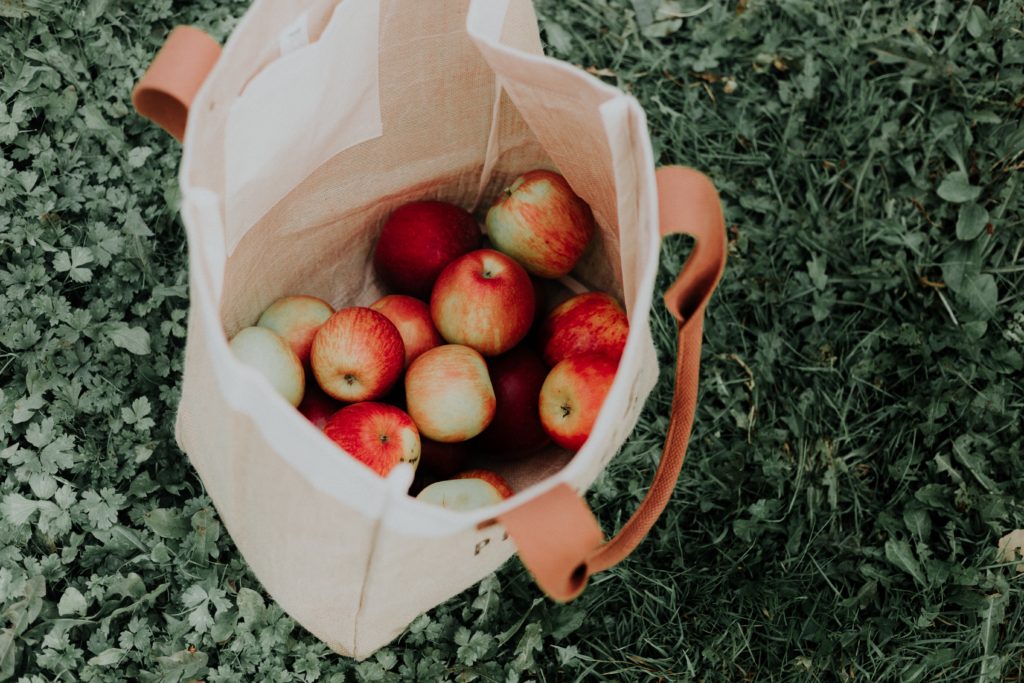
8 Reasons You Should Use Reusable Grocery Bags
- By apentengcollins
- December 3, 2020

When you’re getting ready to leave the grocery store, a commonly asked question in the checkout line is this: “Paper or plastic?”
Whichever way you respond, you probably have your reasons. Maybe you’re planning to recycle or reuse that paper bag, or maybe you use those plastic shopping bags for cleaning around the house. Maybe you think your choice, whether it’s paper or plastic, is the more environmentally friendly option. But in reality, whatever you’re choosing between paper and plastic, no matter your intentions, you’re still choosing “wrong” — because there’s a better option out there: a reusable grocery bag.

A growing movement around the country is for consumers to purchase and bring their own reusable bags to the store to use to carry their products home. While they cost a little more up front, there are many benefits of reusable bags, particularly when it comes to easing plastic bag pollution and the effects of plastic on the environment.
Just why are plastic bags bad for the environment? There are a number of reasons. From their production to their lack of recyclability to their tendency to end up in landfills — or worse, out of them — and the many years they take to decompose, plastic bags pose a lot of problems when it comes to the world’s well-being.
Paper bags avoid some of the pitfalls of plastic bags because paper bags can be recycled and take less time to decompose if they don’t make it to a landfill. Even so, paper bags are made either from trees, which are important to conserve, or from recycled material, which takes a lot of energy to produce, according to NASA.
Those are some general reasons to use reusable bags rather than paper or plastic bags, but let’s take a look at some of the more specific benefits of reusable bags, the negative impact of plastic bag pollution, and a few other reasons it’s a good idea to bring your own bag.
Why you should use reusable bags
1. Conserve resources
Though they seem small and light, plastic bags have a much larger environmental footprint than you may imagine, beginning with the energy required to make them. Twelve million barrels of oil are used to manufacture the plastic bags consumed in the United States each year, according to Waste Management Northwest. On a smaller scale, according to SPREP.org, you could drive a car a mile for the same amount of gasoline it takes to manufacture 14 plastic bags.
2. Decrease pollution
The effects of plastic on the environment can be devastating. Plastic products such as plastic bags can take between 15 and 1,000 years to break down, and that’s assuming they even make it into a landfill instead of winding up in water such as streams, rivers or the ocean — or floating around the neighborhood. Of the 100 billion plastic shopping bags Americans use each year, only about 1 percent are recycled, so a lot of plastic bag pollution is generated annually.

3. Avoid recycling problems
Even where good intentions lead someone to recycle their plastic grocery bags, a lot of recycling equipment can’t handle the task, according to a 2016 Business Insider article. Bags get snagged on conveyors belts and wheels, clogging the machinery; they can be difficult to separate from other recycled products; or they end up drifting to other parts of the recycling plant — or even end up outside of the plant. The best option for recycling these bags is to take them to a specific drop-off center for plastic bags; these can sometimes be found at your local grocery store.
4. Protect wildlife
More than 100,000 marine animal deaths are caused each year when marine animals mistake plastic shopping bags in the ocean for food, according to SPREP.org. Plastic bags also get snagged in trees, and small animals can become trapped in them, leaving to even more wildlife deaths in the environment.

5. Enjoy strength and durability
Unlike plastic bags, reusable bags are unlikely to have their handle tear off or to develop a hole if the corner of a box or other sharp products press into them. Reusable bags are easier to use for both loading and unloading groceries, and your purchases are more likely to survive the trip to and from the store. Leaks are less likely to be a problem with reusable bags, and it’s easier to control where reusable bags have been and what germs they may carry.
6. Save money
Many stores in the United States now charge customers for plastic bags. While a nickel or dime per bag may not feel like a lot to spend, consider how quickly that adds up for a consumer who uses five or ten bags with each trip to the store. Not to mention, the average American family uses nearly 1,500 plastic shopping bags each year, according to grocery shopping statistics from the Natural Resources Defense Council. If each bag costs a nickel, that’s $75 a year you could save on grocery bags!
7. Repurpose for other uses

Reusable grocery bags can be used for a lot more than carrying groceries. A nice reusable bag is essentially a structured tote bag, and can be used for many of the things you’d use a tote bag for. You can pack your lunch in them, use them to carry snacks on a road trip, take books to and from the library, etc.
8. Because you can

If it’s hard to imagine life without plastic grocery bags, consider this: plastic grocery bags were introduced at grocery stores in 1977, according to Waste Management Northwest. Generations of people over thousands of years got along just fine using their own bags to carry their purchases home — and you can, too! When it comes to plastic bags vs. reusable bags, the choice is obvious.
Connect with us on Instagram